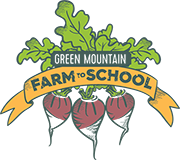By Rose Lovett and Meggie Patton
What is food sovereignty?
“According to the International Movement on Food Sovereignty, the term food sovereignty means ‘the right of peoples to healthy and culturally-appropriate food produced through ecologically sound and sustainable methods, and their right to define their own food and agriculture systems.’
The food system should belong to the people, not the big-name grocery stores. Food sovereignty initiatives aim to strengthen the connection that people have to their food, whether by developing community gardens, raising awareness of seasonal and local options, or decreasing barriers to access food. Food sovereignty is about dignity and having autonomy over our food.”
Why is it important?
“Good, local food is a right. However, food insecurity is a growing concern in the Northeast Kingdom, partly due to limited transportation options and the rising cost of food. If people had more control and access to the food system, these market changes and policies would not have such negative effects. Individuals deserve the education and opportunity to grow and store their own food or to access meals without overburdening their personal income.”
How does this idea of food sovereignty relate to GMFTS’ work?
“GMFTS’ work addresses food sovereignty in two key ways. First, our amazing team of Farm-to-School Coordinators help teach young Vermonters how to grow, tend, harvest, store, and prepare food through the school garden network. These skills give kids a sense of autonomy over the food they eat and an early appreciation for the benefits of growing something themselves.
Secondly, we work with a network of food access initiatives. Our summer Lunchbox program is a free meal site for all kids 18 and under. Meals are healthy and feature local ingredients. We also operate a free summer market basket, a program through which we share our school garden bounty with community members. We strive to make our food access initiatives stigma-free; food is a community right, not something people should feel shame about needing.”
Where can people learn more about food sovereignty?
“There are a lot of great people working on food sovereignty and food access in the Kingdom. We partner with the team at NEKCA to update the NEK Food Access Directory every season. Then of course there is the Vermont Foodbank and 3SquaresVT, organizations that are constantly evolving to meet the food access needs of our community (3Squares even operates a texting line for food assistance). NOFA has a program which helps fund a portion of the cost for families who would like to sign up for a local CSA program. And Hunger Free VT helps advocate for policies and improve overall food access in the state.”





